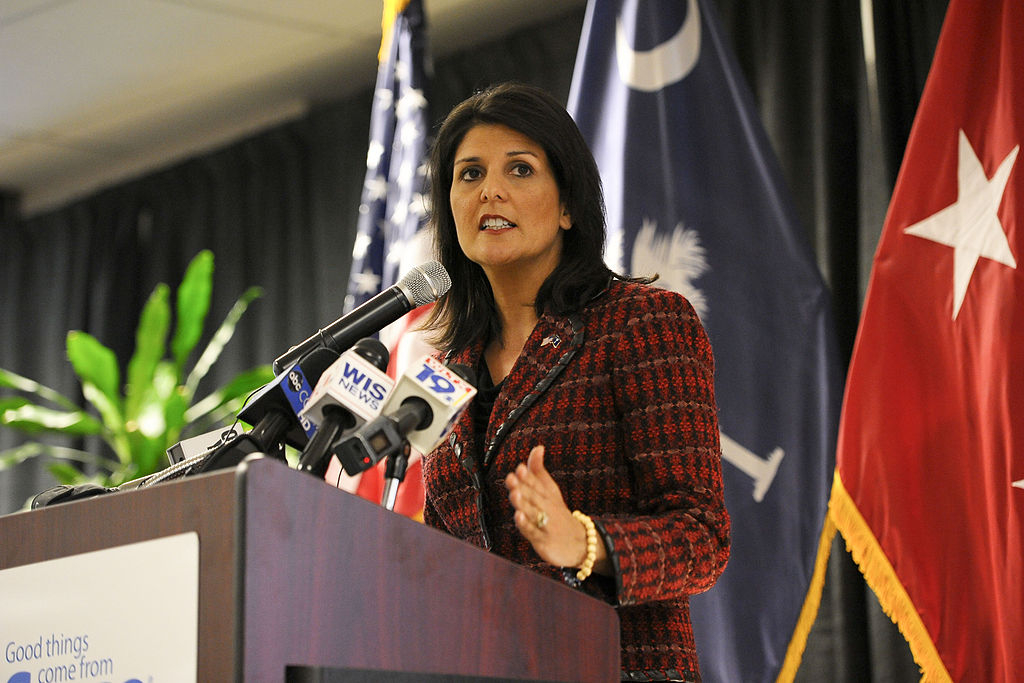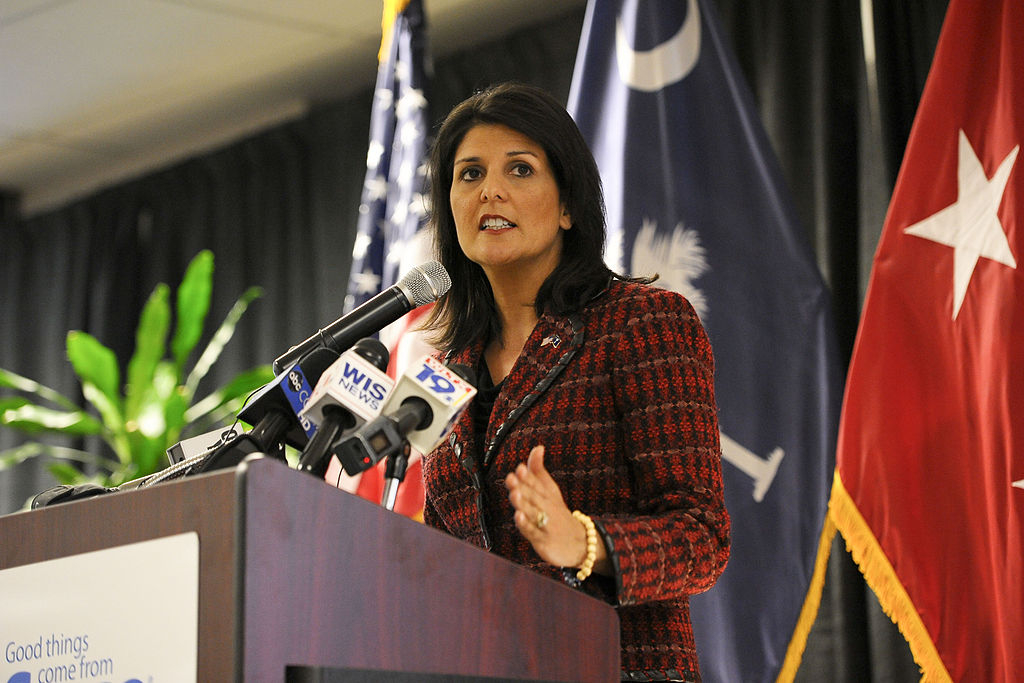The “rise of populism” has become an absorbing subject for political commentators in the West, yet as the Cato Institute scholar, Alberto Mingardi, helpfully observes, the term is “as slippery as it is popular.”
Perhaps the most noteworthy feature of this current political trend is why we are struck by it. The nations of the West are, after all, democracies: systems of government designed to translate popular concerns into legislative instruments.
An answer to this dysfunction might lie in the layers of transnational governance, which proliferated after the Second World War, superseding national, and by implication democratically-accountable, decision making.
The horrendous carnage that ripped the world apart in the middle of the last century led to a principled decision by the world’s leaders to promote the formulation, and then ratification, of the Universal Declaration of Human Rights.
Today, the most senior transnational body responsible for preserving such rights, the United Nations Human Rights Council (UNHRC), housed within the Palace of Nations in Geneva, is arguably a pathetic joke.
To say so is not an exercise in polemic; it is a product of soberly assessing the facts.
The following nations, for example, have been elected by the UN to the UNHRC, and charged with upholding “the highest standards in the promotion and protection of human rights,” for 2017, according to UN Watch:
The United Arab Emirates
The UAE is an autocracy where political parties are banned. According to Human Rights Watch (HRW), the Gulf state “often uses its affluence to mask [its] government’s serious human rights problems. The government arbitrarily detains, and in some cases forcibly disappears, individuals who criticized the authorities, and its security forces face allegations of torturing detainees.” Violence against women is frequently recorded in the UAE, as is the abuse of the migrant workers who form 88.5% of its population, and who often live in slave-like conditions.
Burundi
The African nation apparently qualifies to preach to the rest of the world on the subject of human rights, seemingly thanks to its government being “behind systematic human rights violations, including executions and torture,” according to the UN’s own investigators. With 564 cases of executions between April 2015 and August 2016 — considered a “conservative estimate” — the nation received a warning last November not to commit genocide.
Saudi Arabia
Executions for “crimes” — including apostasy, adultery and witchcraft — take place in the founding nation of Islam. There is no freedom of religion — despite 4.4% of the country secretly identifying as Christians — and there is no freedom of speech. Saudi Arabia was also, absurdly, chosen by the UNHRC to hold a conference on “combatting religious discrimination” in June 2015. The ruling monarchy in the country is reputedly increasingly unpopular. It apparently chose to salve this decline in its appeal by beheading one its many princes in October 2016.
It is also well known for flogging — nearly to death — anyone who might suggest a thought with which the ruling monarchs and clergy might not agree.
In 2014, in Saudi Arabia, a young blogger, Raif Badawi, was sentenced, in violation of international law, which prohibits such punishments, to 1000 lashes — very harshly, the flogging order read — followed by ten years in prison and a fine of $260,000 for writing thoughts such as, “My commitment is… to reject any oppression in the name of religion… a goal that we will reach in a peaceful and law-abiding way.”
“As others respect our difference with them, we should respect the differences that others have with us, and recall the great humanitarian sense of Saudi King Abdullah bin Abdul Aziz. … It requires courage to respect others’ views, to appreciate others’ beliefs choices along with their right to believe them.”
Badawi already received the first of the twenty floggings of 50 lashes each to which he was condemned; and, if that were not revolting enough, his lawyer, Walid Abu’l-Khayr (Waleed Abulkhair), was jailed as well.
Where was the United Nations then? A royal pardon for both men should be granted immediately.
China
The world’s most populous nation is notorious for the brutal suppression of its ethnic minorities, chiefly the Tibetans. Freedom of association remains “severely restricted” in China whilst freedom of expression encounters government censors who erase “politically unacceptable information.” In the officially atheist state, freedom of religion is subject to “crackdowns.” Each freedom is supposedly protected by Articles 20, 19 and 18 respectively of the Universal Declaration of Human Rights. There are widespread and credible allegations of organ harvesting against religious minorities in the country, where the long-term imprisonment of dissidents continues to be commonplace.
Bangladesh
Bloggers and secular intellectuals live in perpetual fear of indiscriminate Islamist attacks in Bangladesh. A three-year “murder spree” in the country also “spread to aid workers, minority religions and Muslims who did not want their country reshaped by extremist Islam,” according to the Guardian. Atheists and gay rights campaigners have also been killed. “[E]xtra judicial killings by security forces,” continue to blight the country. In the past five years, “at least 298 people have vanished through enforced disappearances,” says VOA News — a “routine practise” in the nation.
Congo
According to the Office of the United Nations High Commissioner for Human Rights, “serious” human rights violations are “pervasive” in the Congo. These include, “arbitrary executions, rape, torture and cruel, inhuman and degrading treatment,” which are mostly committed by “the army, police and intelligence services.” Armed groups in the country, “have perpetrated massacres, arbitrary executions, abductions of villagers, and subjected women to systematic rape, sexual slavery and other forms of sexual violence with full impunity.”
So, with nations with such woeful human rights records responsible for the supervision of the maintenance of human rights worldwide, which nation in the world is subjected to the greatest degree of criticism and scrutiny at the United Nations Human Rights Council?
In recent years, genocide and fighting in Syria, carried out both by Islamist forces and the regime of President Bashar al-Assad, have claimed an estimated 400,000 lives and injured a further 1.9 million.
Since 2015, Syria has curiously faced only 16 separate reprimands at the UNHRC, whilst Israel — the most condemned country within the council — has faced 62 such reprimands.
Unsurprisingly the UNHRC has consequently earned itself, “a reputation for maintaining a blatant anti-Israel bias.” Countries which “frequently stifle dissent and freedom of speech,” argues counterterrorism expert Steven Emerson, “have been exempt from a single resolution or special session.”
“Instead of focusing on real human rights abuses, the Commission’s rights violators devote much of their time to praising each other.”
In testimony before the US House Committee on Foreign Affairs, in May 2016, Hillel Neuer — the executive director of UN Watch — “recalled being present when China commended Saudi Arabia for respecting religious freedom; the following day, Saudi Arabia praised China for upholding minority rights.”
In 2015, even the outgoing US Secretary of State, John Kerry, condemned the UNHRC’s “obsession with Israel” as risking “undermining the credibility of the entire organization.”
Secretary of State Kerry was understandably perplexed by how the UNHRC did not spend more time condemning the “appalling” human rights records of countries such as North Korea, instead of obsessively focusing on Israel.
In June 2016, Israel’s envoy to the UNHRC highlighted the “politicized debates, biased resolutions, preposterous reports, discriminatory conduct and unfounded accusations,” which are the hallmark of the Council’s attitude towards the Jewish state.
In telling remarks, Eviatar Manor went on to question why there was an agenda item attacking Israel tabled at the UNHRC, at the time, whilst “the tragedies of Syria, Yemen, Iraq, Libya, to name but a few, are unfolding and producing a tsunami of refugees about to engulf Europe?”
Manor’s comments arguably go to the heart of how distant, unaccountable, undemocratic and often un-transparent transnational institutions, such as the European Union and the UN, are arguably fuelling the rise of populist politics throughout the West.
When those handsomely remunerated within transnational institutions make their priority spiteful political issues and arguably anti-Semitic point-scoring — rather than protecting hard-won humanistic principles such as human rights — the very values that differentiate segments of the modern world from the more barbarous norms of the past — their legitimacy is eroded.
Moreover, when the United Nations abandons these irreplaceable values, how is it that the wider world has pretended not to notice?
Some commentators refer to the growth of populist opposition to the power of transnational bodies, such as the European Union, as “sovereignty’s revenge.”
“Nowhere has the UN’s failure been more consistent and more outrageous than in its bias against our close ally Israel,” argues South Carolina Governor Nikki Haley — appointed by President Trump as the new US Ambassador to the United Nations.

Nikki Haley (pictured above from 2014), President Trump’s appointment to the United Nations, has stated: “Nowhere has the UN’s failure been more consistent and more outrageous than in its bias against our close ally Israel.” (Image source: defenseimagery.mil) |
Haley asked during her confirmation hearing, on January 18, whether the United States was “getting what we pay for? We contribute 22% of the UN’s budget, far more than any other country. We are a generous nation. But we must ask ourselves what good is being accomplished by this disproportionate contribution.”
Such a question mirrors the remarks of the former US ambassador to the United Nations, John R. Bolton, who argued in 2015 that there should be no mandatory funding of the UN — that the US should “pay only for what we want, and we would insist that we get what we pay for.”
Senators Lindsay Graham and Ted Cruz have suggested defunding the UN altogether, whilst others have suggested leaving the UN entirely.
It is high time that democratic nations reasserted their sovereignty in the face of these unelected, untransparent, and unaccountable transnational institutions that so often make a mockery of the standards they are pledged to uphold.
George Igler, between 2010 and 2016, aided those facing death across Europe for criticizing Islam.
























